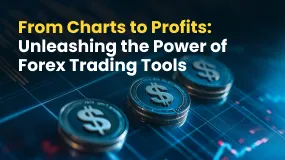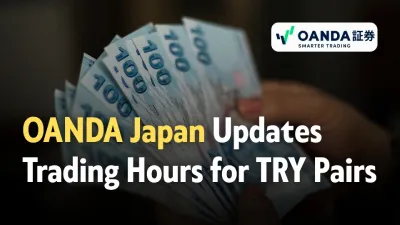简体中文
繁體中文
English
Pусский
日本語
ภาษาไทย
Tiếng Việt
Bahasa Indonesia
Español
हिन्दी
Filippiiniläinen
Français
Deutsch
Português
Türkçe
한국어
العربية
Can Expert Advisors Weather the Market Turmoil?
Abstract:Expert Advisors (EAs) have become the holy grail for many traders, promising automated profits with minimal effort. But, can they truly withstand market turmoil? Or are they simply gambling devices dressed up in technological garb?

Expert Advisors (EAs) have become the holy grail for many traders, promising automated profits with minimal effort. These digital trading assistants, armed with complex algorithms, are designed to analyse market data, identify trading opportunities, and execute trades with lightning speed. However, the allure of effortless wealth has led to a surge in EA adoption, raising questions about their ability to withstand the inevitable market turmoil.
Proponents of EAs argue that these systems can be a trader's best friend, capable of eliminating emotional biases and capitalizing on fleeting market opportunities. Back testing, a process of testing trading strategies on historical data, is often touted as a foolproof method for creating robust EAs. Yet, critics caution that past performance is no guarantee of future results, especially in the unpredictable world of finance.

Market turmoil, characterized by sharp price movements, increased volatility, and heightened uncertainty, is the ultimate test for any trading strategy, human or algorithmic. While EAs can theoretically adapt to changing market conditions through dynamic parameters, the speed and severity of market shocks can overwhelm even the most sophisticated systems. Moreover, black swan events—unforeseeable and high-impact occurrences—can expose the limitations of back testing, as historical data may not accurately reflect future market behaviour.
Another critical factor is the quality and expertise of the developers behind these EAs. Creating a profitable and resilient trading system requires a deep understanding of programming, statistics, and financial markets. While many EAs are available for purchase, the lack of transparency in their development process can lead to suboptimal performance and unexpected risks.
Furthermore, the regulatory landscape for automated trading is constantly evolving. As regulators grapple with the implications of high-frequency trading and algorithmic trading, the rules governing EAs may become more stringent. This could impact the profitability and legality of certain strategies.
Ultimately, the success of an EA depends on a combination of factors, including the underlying trading strategy, the quality of the code, the robustness of risk management, and the trader's ability to monitor and adjust the system. While EAs can be a valuable tool for experienced traders, they are not a guaranteed path to riches. As with any investment, caution and due diligence are essential.
The debate over the effectiveness of EAs in turbulent markets is far from settled. As technology continues to advance and market conditions fluctuate, the role of these automated systems will undoubtedly evolve. Whether they will ultimately prove to be reliable partners or fleeting fads remains to be seen.

Disclaimer:
The views in this article only represent the author's personal views, and do not constitute investment advice on this platform. This platform does not guarantee the accuracy, completeness and timeliness of the information in the article, and will not be liable for any loss caused by the use of or reliance on the information in the article.
Read more

From Charts to Profits: Unleashing the Power of Forex Trading Tools
Want in-depth insights into the forex trading market so that you can make an informed investment call? Start unleashing the power of forex trading tools. These tools, comprising both fundamental analysis and technical charts, lay the foundation for successful forex outcomes.

FCA Publishes New Warning List! Check It Now to Stay Safe
FRAUD ALERT! – All investors and traders should be careful. The UK’s financial regulator, the Financial Conduct Authority (FCA), has warned people about fake brokers that are working without a license. These scam brokers take people’s money and disappear. The FCA shares a list of these fake brokers every day to help people stay safe. Checkout the List below to Stay Safe.

New to Forex Trading? Check Out These 6 Key Features of Taurex
If you're just stepping into the forex market and feeling confused about which broker to choose, you might consider giving a chance to a regulated forex broker like Taurex. You may wonder why we are specifically mentioning this broker. It is because of several strong reasons outlined in the article below.

OANDA Japan Announces New Trading Hours for TRY Pairs
OANDA Japan updates trading hours for Turkish Lira pairs (TRY/JPY, EUR/TRY, USD/TRY) starting August 11, 2025, aiming to address liquidity challenges in Forex trading.
WikiFX Broker
Latest News
Forex Hedging Strategies - Calming You Amid Market Chaos
Key Events This Week: ISM, Trade Balance And More Earnings
What Is Forex Currency Trading? Explained Simply
A Beginner’s Guide to Trading Forex During News Releases
Ultima Markets enters the UK and gains the FCA license
LSEG Announces £1 Billion Share Buyback Program
SEC Lawsuit Targets Real Estate Fraud Scheme by Joseph Nantomah
ASIC Regulated Forex Brokers: Why Licensing Still Matters in 2025
FCA Publishes New Warning List! Check It Now to Stay Safe
EC Markets: A Closer Look at Its Licenses
Currency Calculator


